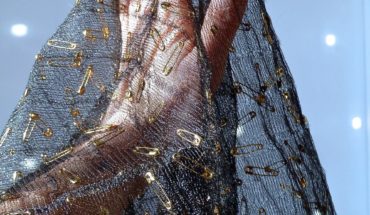Contact events in rugby union linked to reduced blood flow to the brain, impacting brain function: Repetitive contact events incurred over a single season resulted in professional rugby union players having a reduced ability to regulate blood flow to the brain, which is essential for normal function.
The health consequence of this is crucial, as it may pay the way for neurodegenerative disease later in life.
That’s according to new research published in The Physiological Society‘s journal Experimental Physiology.
Additionally, the researchers compared effects on players who were in the position of forward versus back.
Compared to backs, forwards were involved in more contact events (such as tackles and collisions) and demonstrated an accelerated decline in their ability to regulate blood flow to the brain.
This research suggests that the decline in blood flow regulation was related to an increased formation of invisible molecules called free radicals that circulate in the bloodstream.
In excess, they prevent blood vessels from opening up as they should, to get oxygen and glucose to the brain due to a shortage of nitric oxide, which causes blood vessels to open.
Previous research in rugby union has predominantly focused on concussion incidence, but the physiological toll of repetitive contact on the field has not been investigated to date.
This new study addresses these gaps by highlighting the physiological “signatures” of professional rugby players who are exposed to repetitive contact sustained on the field.
This research can lead to improved treatment to mitigate the impacts and make the sport safer for these players’ brains.
Previous research has linked concussion in rugby with neurodegenerative diseases in later life.
This new study is the first to highlight that repetitive contact sustained through participation in rugby union causes subtle, yet important alterations in a player’s ability to regulate blood flow to the brain, over a single season.
These changes may potentially pave the way for neurodegenerative diseases in later life.
The researchers collected data before, during and after a season that comprised 31 games.
Before the season began, they created a profile for each player based on data including molecular (blood-borne), cerebrovascular (blood flow regulation to the brain) and cognitive (memory, attention, concentration) metrics.
During the season, they determined how many contact events each player was exposed to throughout play. They also mapped concussion incidence in order to determine which match event was most likely to cause concussion. Following conclusion of the season, they reassessed the players’ physiological profiles and mapped these against contact events sustained throughout the season.
The research was performed on 21 players (13 forwards and 8 backs). Future research is encouraged to confirm these findings on a larger scale.
Commenting on the study, Professor Damian Bailey, senior author said:
“We hope that this study will encourage more rugby teams to engage in larger scale studies of this nature to determine the life-long implications associated with recurrent contact and concussion in rugby, including the potential links to neurodegeneration in later life. Our ultimate goal is to make the sport safer for the players and minimise the damage they incur through contact.”
- Full paper title: Link to paper https://physoc.onlinelibrary.wiley.com/doi/abs/10.1113/EP089330 (link will only work after the embargo date. Before then, please email the press office for a copy of the paper)
- Experimental Physiology publishes advances in physiology which increase our understanding of how our bodies function in health and disease. http://jp.physoc.org
- The Physiological Society brings together over 4,000 scientists from over 60 countries. The Society promotes physiology with the public and parliament alike. It supports physiologists by organising world-class conferences and offering grants for research and also publishes the latest developments in the field in its three leading scientific journals, The Journal of Physiology, Experimental Physiology and Physiological Reports. www.physoc.org
- Coeliac UK at Medical Research Showcase - 30th January 2026
- USA Fat Camp (1940) - 30th January 2026
- Almost half of Brits on weight loss jabs are ‘hacking’ medication - 30th January 2026







